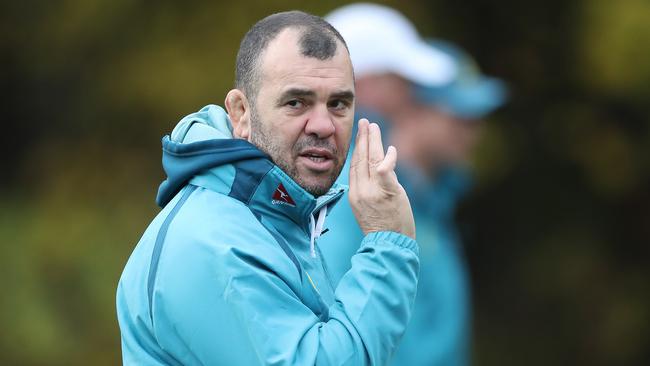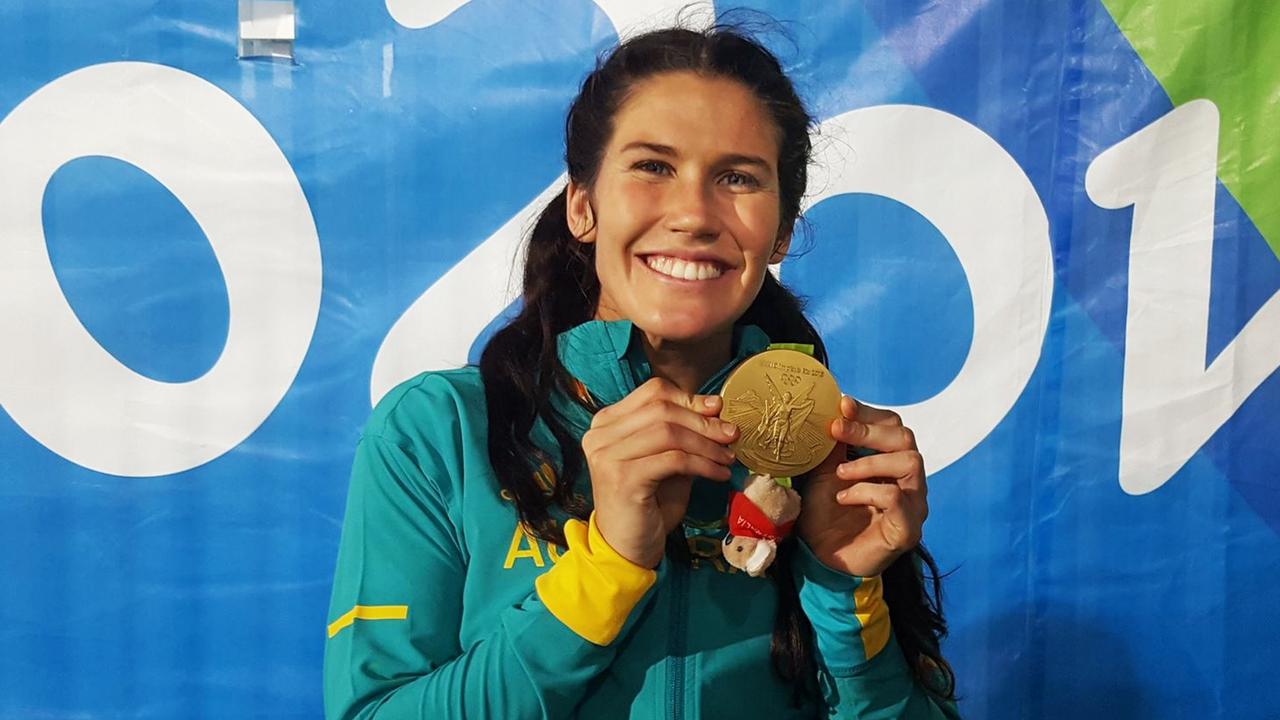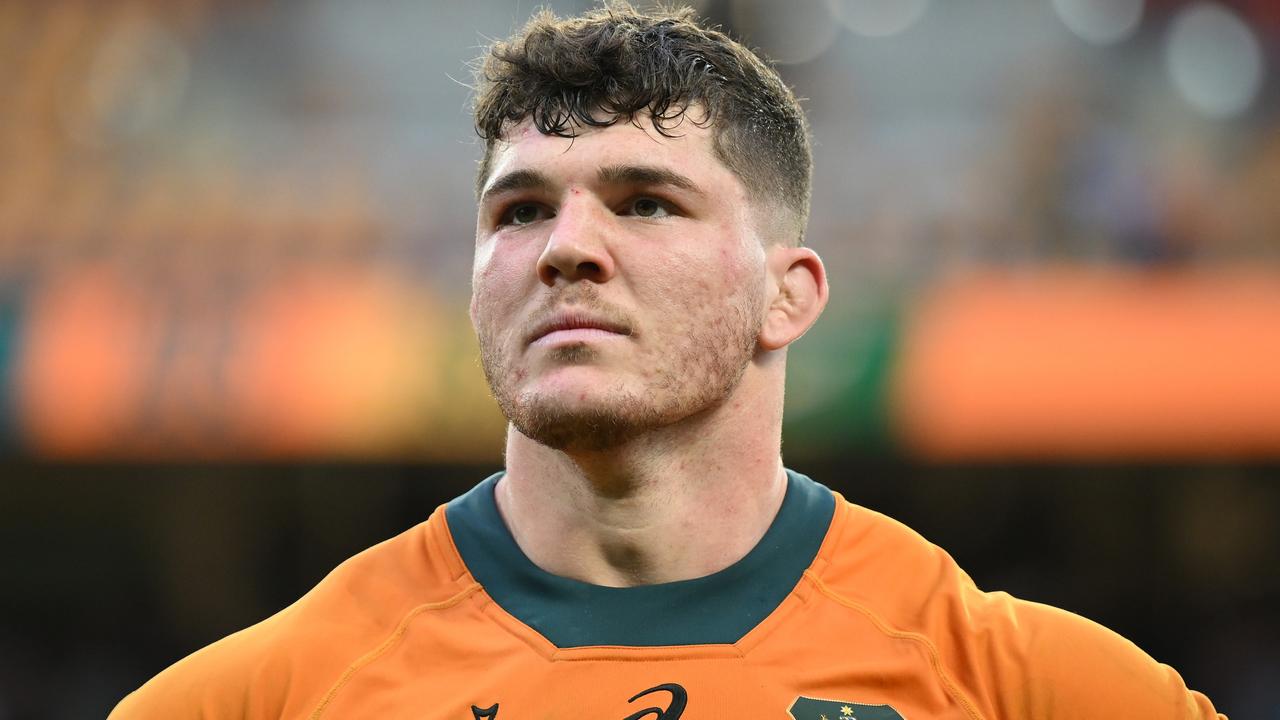Wallabies were splendid, but Cheika has his hands tied

Rugby supporters, along with Michael Cheika, breathed a sigh of relief last Saturday evening after what was, by any reckoning, quite a splendid performance by the Wallabies against Ireland.
In the aftermath of some awful Super Rugby performances, Cheika’s Wallabies warmed the hearts of many.
The Wallabies’ defence was very good and Bernard Foley and Kurtley Beale did the job effectively in the midfield, when Ireland were in our half.
As for Beale, he is one of the most gifted players ever to play international rugby.
Add to that Israel Folau, who was brilliant in the air.
There was a refreshing willingness to play with width and move the ball away from the pick and drive rubbish on the ground.
I’ve said many times you can’t win Test matches against very good sides playing the ball on the ground. Simple as that!
Cheika will be aware, though, that it would be foolish to get carried away. Our lineout was poor and there is definitely a problem at hooker and changes will have to be made for tomorrow’s Test.
If Ireland start with their best team — and they rested several last Saturday — tomorrow will be much more difficult.
The big plus for the Wallabies was the man they call Tongan Thor, Taniela Tupou, who has worked hard on his scrum and now looks like a world-class tighthead. David Pocock received many wraps. They were justified.
However, the lineout suffers without a jumper at six. And Pocock jumping at two in the lineout is not the answer.
This poses a big problem for Cheika, because on the one hand Pocock turns the ball over and Michael Hooper doesn’t.
So does one of them go because if the Wallabies are forced to play lots of short lineouts as they have only two jumpers, the backline won’t get the required room to attack from set play, yet it’s a backline that should be let loose at every turn.
There were some ominous warnings in the Irish press this week.
Andy Farrell, their defence coach and a former rugby league great, has warned of a “lively” encounter tomorrow.
After Ireland trained at St Kevin’s in the suburbs of Melbourne, Farrell said: “We’ll see what we’re made of ... I mean, this is what top-level rugby is all about. We’ll see what the good old-fashioned Irish ticker is about, won’t we? Because it’s the game that matters for us to stay alive.”
He added: “Sometimes it isn’t complicated ... sometimes it’s just a little bit of attitude and a bit of fight.”
Beware.
Unfortunately, we have more to worry about off the paddock.
Staggeringly to me, Rugby Australia has given Hooper a five-year contract at $1 million a year, if reports are to be believed.
Some would say he may not be the best No 7 in the country. Five years is a long time.
What happens if the next coach prefers a different captain and a different style of play at No 7?
Enter Raelene Castle. She was part of creating the mess of back-ended contracts at the Canterbury rugby league club. Has she made the same mistake here?
A three-year contract for a player is the longest any should have and a one-year contract for a coach. Every coach should expect his performance to be reviewed at the end of 12 months.
But if you are signing a particular player in a particular position to a five-year deal, you’re effectively telling all other Australian rugby players in that position that the incumbent has the spot for good.
This is hardly the message the young rugby players want to hear.
And after Folau’s brilliant performance on Saturday, where are his contract negotiations? He most probably can name his price, if rugby wants to keep him.
But hopefully Castle doesn’t stitch us all up for another five years, because even the mercurial Folau might be off the boil in 2023.
Talking about signing players and apropos of comments I’ve made before, I coached a couple of young blokes in the Barbarians side last year, the gifted Andrew Kellaway and the massive big man with real ability, Taqele Naiyaravoro.
They’re off to Northampton. They are international quality players.
Thanks to the demise of the Western Force, they’re having to go abroad to realise their dreams of playing top-flight rugby.
And the equally brilliant young Dave Horwitz is off to Connacht.
Well done, Cameron Clyne and co. This is how we plan for the future, I don’t think.
I’ve said before that these are young players going elsewhere to realise their dreams.
Talking of dreams, there is plenty of dreaming in Australian Rugby’s 2017 annual report.
In it, Clyne fails to apologise to the West Australian rugby public for cutting the Force. In which case, how can Rugby Australia maintain its name? It should be called Rugby Australia minus Western Australia.
Clyne has announced a $3.8 million surplus for 2017. Well, if he’s got $3.8m spare, Andrew Forrest would certainly have $3.8m and Rugby Australia would have the money to run the Force.
How does this stack up against Clyne’s argument that rugby could not afford the Force?
Clyne’s other argument was that the talent from shutting down the Force would be distributed among other Super Rugby franchises and that would produce better results.
Those arguments have proven as shallow as most of the other offerings from the board of Rugby Australia.
But the big laugh in the Report came when Clyne started rating the performance of Rugby Australia, which is presumably his administration.
The report card said 75/100 – which must mean Rugby Australia has achieved 75 per cent success.
He’d be the only person on the planet to think Australian Rugby enjoyed a successful 2017.
The Wallabies won 50 per cent of their games. The Australian under-20s came sixth at the under-20s World Cup.
The Australian men’s sevens team came sixth at the World Rugby Sevens. The Western Force were wound up. The Super Rugby TV ratings were appalling.
But Clyne marked his report card under the following wishy-washy headings.
“A — Making Rugby a Game For All”.
How do you measure that and then score yourself 92 per cent successful? He’s kidding.
“B — Igniting Australia’s Passion for the Game”
How do you measure this stuff?
For the record, he scored himself 68 per cent. I don’t know what happened to the other 32 per cent, who obviously aren’t passionate.
“C — Building Sustainable Success in Australian Rugby”.
He scored himself 72 per cent successful. So the Wallabies win 50 per cent of their Test matches and our Super Rugby teams fail to beat New Zealand at all in 2017 and he gives himself a rating of 72 per cent.
The bloke is living in Dreamworld.
“D — Creating Excellence in How the Game is Run”. Well, more waffle. But he scored himself 68 per cent successful.
It’s hard to believe this bloke could sign off on this marketing spin. It’s nothing short of embarrassing.
But then, I guess, he knows that there are only two kinds of people in relation to the annual report: those who chuck it in the bin and those who try to read it and then hoist it in the bin.
The report also indicated that the High-Performance National Teams’ Program enjoyed an uplift in investment of $2.3m on the previous year.
This is the so-called High-Performance Unit.
The big initiative in 2017 was the recruitment of Rod Kafer. How much of the $2.3m was spent on Kafer?
His role has been to coach the coaches and ensure we’re producing winning national teams.
But Kafer was a failure as a coach and under his watch all four of our Super Rugby franchises are now coached by rookie coaches.
For the record, at the end of 2017, the Wallabies were ranked fourth in the world, the men’s sevens were ranked sixth in the world and the under-20s were ranked sixth.
Thank heavens for the women’s sevens – they were ranked two.
If this is high-performance, how can those working in the unit keep their jobs?
I’ve said before, Cheika is working on the national side with his hands tied behind his back by an appalling administration and a certain knowledge that our clout in world rugby is dramatically diminished.
To paraphrase Donald Trump, it’s surely long overdue that we cleaned out the rugby swamp.
Alan Jones is a former coach of the Wallabies and hosts The Alan Jones Breakfast Show on 2GB. He will write rugby columns for The Australian throughout the season.




